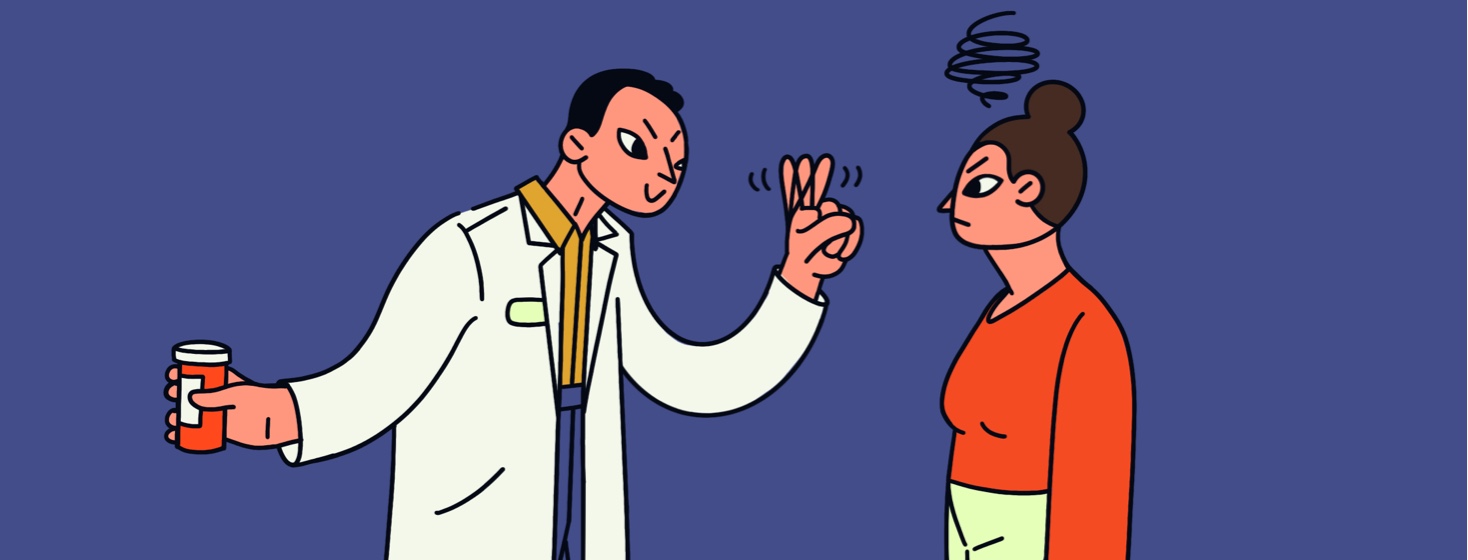Medical Gaslighting
I just read an interesting and very relatable article in the New York Times. In the article, experts share tips on how to advocate for yourself in a healthcare setting. As a person who's had RA for 25 years, I've had to learn how to do this a lot. I've learned how important it is to do and to keep doing for yourself.
What is medical gaslighting?
According to the article, the experience of having one’s concerns dismissed by a medical provider, often referred to as medical gaslighting, can happen to anyone. Some of the readers' comments recounted misdiagnoses that nearly cost them their lives or that delayed treatment, leading to unnecessary suffering. Patients with long Covid wrote about how they felt ignored by the doctors they turned to for help.
Not everyone is treated equally
The article also discusses how the problem of medical gaslighting has been drawing some attention lately in the medical community and the general public for disproportionately affecting women, people of color, geriatric patients, and people in the LGBTQ+ community—basically, those who are marginalized in our society. I would personally add chronically ill and disabled people to this list. Many of those who are marginalized, especially women and people of color, are more likely to not have their pain or symptoms believed, and it often takes longer to receive proper diagnoses for health conditions.
It's appalling that this gaslighting happens in the first place and that it keeps happening. I've experienced it many times myself, and not only does it prevent you from receiving the care and relief you desperately need, but it's also emotionally harmful. You feel dismissed, demoralized, patronized, unimportant, or like a non-person who doesn't matter.
My experience
I've especially experienced medical gaslighting when trying to work with several pain management clinics. The dismissiveness, arrogance, and downright disrespect I've received from some doctors are shockingly disgusting. I've been accused of being a pill seeker, just trying to get my much-needed opioid prescription refilled. Or someone struggling with addiction. Or a liar "pretending" to be in pain because I wanted opioids.
I shouldn't even have to say this, but I will. I've taken opioid medication off and on for years, always responsibly and always under the care of a physician. The "opioid crisis" is a huge topic in itself, and I think it has contributed to more and worse medical gaslighting regarding patients' pain being believed.
Self-advocacy is so important
Probably needless to say, I left and "fired" those pain management doctors because I refused to be treated with such disrespect and like I was a child or criminal. Happily, I now see 2 pain management doctors, and both are great! One is in a "regular" pain clinic and works with me regarding prescribing medications as needed. The other one is my integrative pain management doctor. She and I work together on using an integrative medicine approach to manage chronic pain without using opioids or other medications.
The New York Times article shares some signs of gaslighting to look out for and ways to help you advocate for yourself with your providers. Check out the article for this great information and advocacy tips! Also, if you have experienced medical gaslighting, know that you're not alone, and you're not "crazy" or overreacting or anything the gaslighters might want you to believe about yourself.
If you feel you're being gaslit by a medical provider and not heard or respected, it's completely within your right to "fire" your doctor and find someone new. You and your voice matter and should matter, always.

Join the conversation